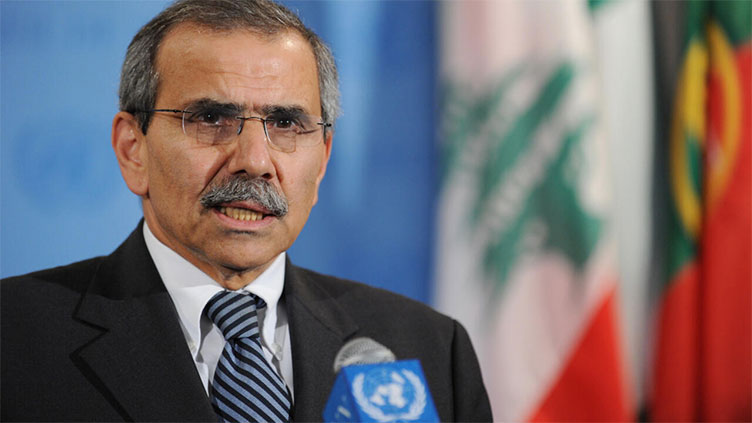Lebanon's Salam, ICJ judge turned prime minister

World
The 71-year-old Nawaf Salam hails from a prominent Beirut political family.
BEIRUT (Lebanon) (AFP) – Nawaf Salam, Lebanon's new prime minister, is a leading international judge who won support for staying out of the political infighting that has paralysed the crisis-hit country in recent years.
The 71-year-old, who until now was presiding judge at the International Court of Justice in The Hague, hails from a prominent Beirut political family.
He had previously been put forward to form a cabinet in the deeply divided Mediterranean country, but Iran-backed Hezbollah had repeatedly objected, with opponents of the group hoping Salam would be able to reform state institutions long under its grip.
Hezbollah has since been badly weakened by its recent war with Israel and the loss of a key ally in Syria's Bashar al-Assad, enabling new Lebanese President Joseph Aoun on Monday to task Salam with forming a government.
The group and its ally Amal again objected to Salam, but for the first time, other political parties previously allied to the Shiite movement have endorsed him.
"Nawaf Salam is widely respected for his academic rigor, independent views, and commitment to justice and human rights," said Lebanese analyst Imed Salamey.
"His ability to maintain equal distance from Lebanon's divided parties, while embodying principles of justice and governance, makes him a symbol of hope for a more accountable and inclusive future."
As the country's economy was collapsing in 2019, mass protests erupted demanding an overhaul of a ruling class accused of corruption and largely unchanged since the 1975-1991 civil war.
But they petered out as the Covid pandemic hit, before a massive explosion at the Beirut port ravaged the capital in 2020.
'REFORMIST'
Born in Beirut in 1953, Salam studied law and political science, including at Harvard in the United States and Sciences Po in France.
He was made Lebanon's ambassador to the United Nations in 2007, when anti-Hezbollah politician Fuad Siniora was prime minister, and stayed in the post for a decade.
Politicians opposed to Hezbollah would go on to suggest several times that Salam head a new government.
He became president of the ICJ in February last year.
"His role at The Hague bolsters his profile as a reformist capable of addressing corruption and inefficiency, aligning him with the demands of Lebanon's citizens for accountability and transparency," said Salamey.
Salam's prolific writings include a 2004 essay about reforming the Lebanese electoral system.
In July, he announced that the ICJ had found that Israel's continued presence in the Palestinian territories was "illegal" and called for an end to "its unlawful presence as rapidly as possible".
The statement was not binding, but came amid mounting concern over the death toll and destruction in Israel's war against Hamas, sparked by the Palestinian group's attack on October 7, 2023.
Israel slammed the decision as "lies", while Palestinians said it was a "watershed moment".
'RIGHT PATH'
Salam's selection comes after lawmakers -- under international pressure, especially from the United States and Saudi Arabia -- finally elected Aoun as president following a two-year vacancy in the role.
Lebanese university professor Ali Mrad said support for Salam's nomination reflected "the real changes that Lebanon is experiencing".
Mrad said that picking a premier with international values, reformist qualities and a track record of having taken a firm stand on the Palestinian issue, could set Lebanon on the "right path".
Salam follows in the footsteps of his uncle Saeb, who headed the government four times between 1952 and 1973, and his cousin Tammam, who was premier from 2014 to 2016.
His wife Sahar Baassiri is a former Lebanese envoy to the UN cultural and education fund in Paris.


